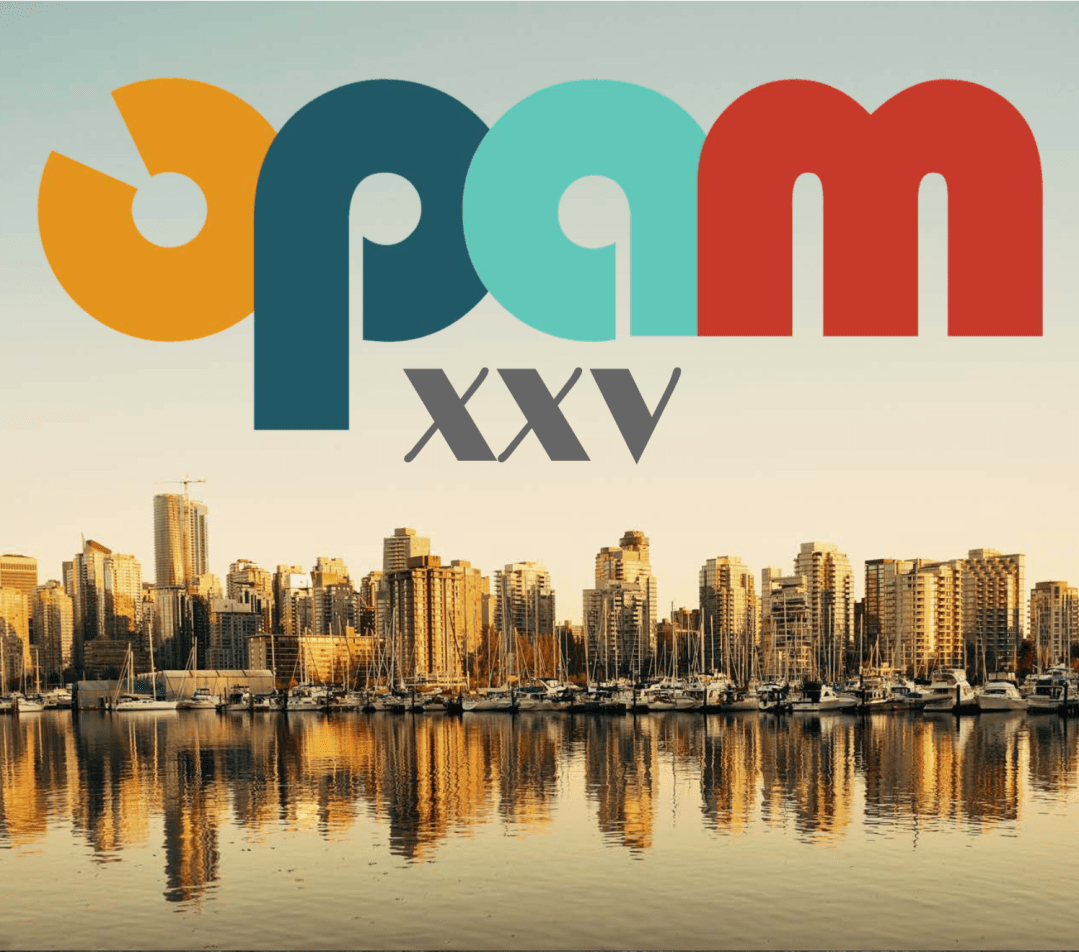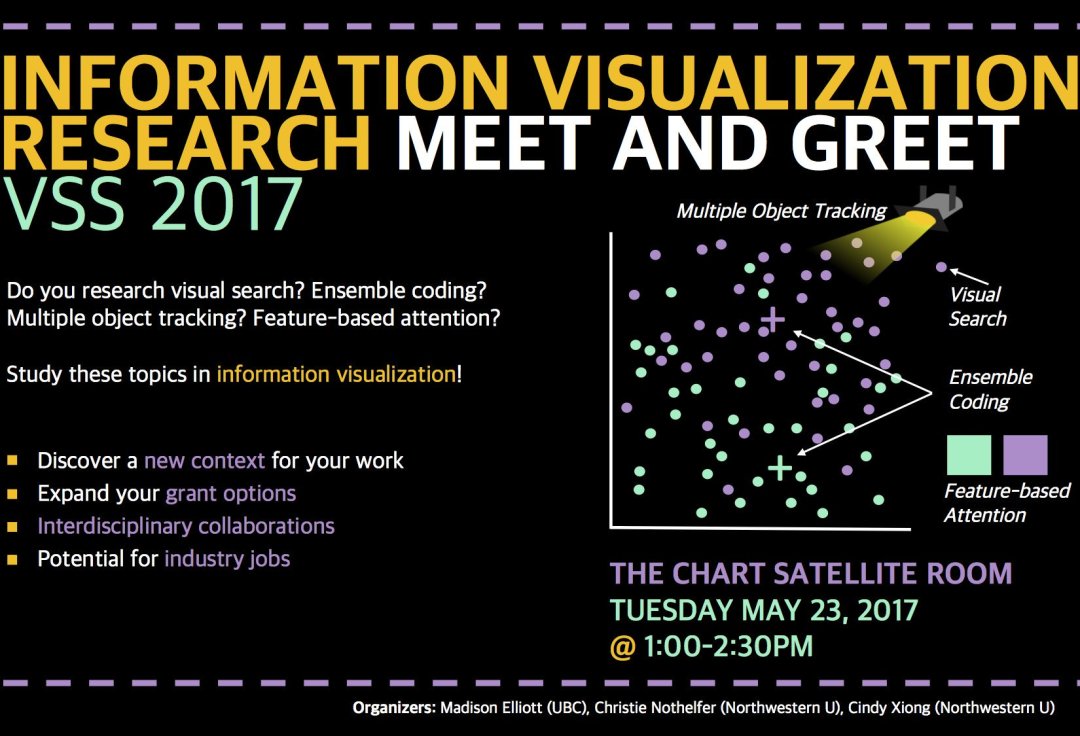Presenters shared lightning talks about their latest work at the intersection of vision science and visualization!
Abstract archives and presentation slides can be found here:
Read our full panel submission with abstracts here!
Panelist Bios and Talk Slides:

Peripheral Vision and Usability
Ruth Rosenholtz is a Principal Research Scientist in MIT’s Department of Brain and Cognitive Sciences, and a member of CSAIL. She has a B.S. in Engineering from Swarthmore College, and an M.S. and Ph.D. in EECS from UC Berkeley. Her lab studies human vision, including visual search, perceptual organization, visual clutter, and peripheral vision. Her work focuses on developing predictive computational models of visual processing, and applying such models to design of user interfaces and information visualizations. She joined MIT in 2003 after 7 years at the Palo Alto Research Center (formerly Xerox PARC).

Visualization and Vision Science.
Ronald Rensink is an Associate Professor in the departments of Computer Science and Psychology at the University of British Columbia (UBC). His research interests include visual perception (especially visual attention), information visualization and visual analytics. He obtained a PhD in Computer Science from UBC in 1992, followed by a postdoc in Psychology at Harvard University, and then several years as a scientist at Cambridge Basic Research, an MIT-Nissan lab in Cambridge MA. He is currently part of the UBC Cognitive Systems Program, an interdisciplinary program combining Computer Science, Linguistics, Philosophy, and Psychology.

Steven Franconeri is Professor of Psychology at Northwestern University, and Director of the Northwestern Cognitive Science Program. His lab studies visual thinking, graph comprehension, and data visualization. He completed his Ph.D. in Experimental Psychology at Harvard University with a National Defense Science and Engineering Fellowship, followed by a Killam Postdoctoral Fellowship at UBC. He has received the Psychonomics Early Career Award and an NSF CAREER award, and his work is funded by the NSF, NIH, and the Department of Education.

A Color Inference Approach to Interpreting Colors in Information Visualization.
Karen Schloss is an Assistant Professor at the University of Wisconsin – Madison in the Department of Psychology and Wisconsin Institute for Discovery. Her Visual Perception and Cognition Lab studies color cognition, information visualization, perceptual organization, and navigation in virtual environments. She received her BA from Barnard College, Columbia University in 2005, with a major in Psychology and a minor in Architecture. She completed her Ph.D. in Psychology at the University of California, Berkeley in 2011 and continued on as a Postdoctoral Scholar from 2011-2013. She spent three years as an Assistant Professor of Research in the Department of Cognitive, Linguistic, and Psychological Sciences at Brown University before joining the faculty at UW – Madison in 2016.

The visXvision organizers at dinner with Ruth Rosenholtz in our hotel’s rotating restaurant 🙂












